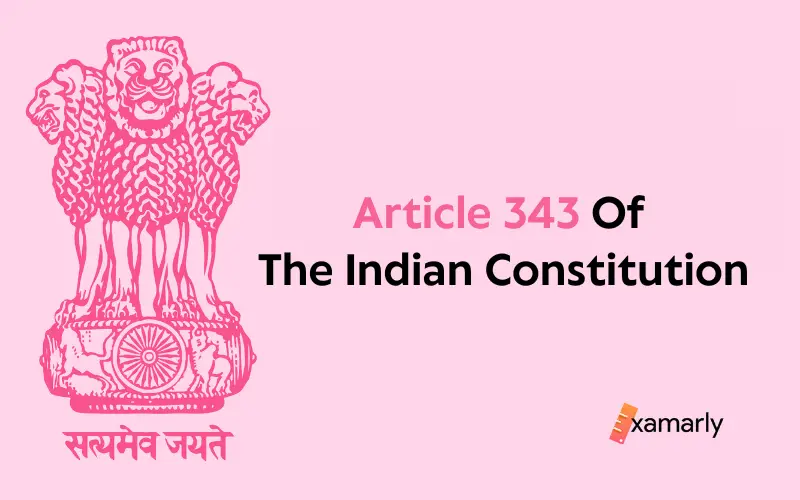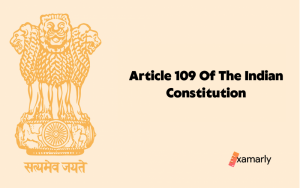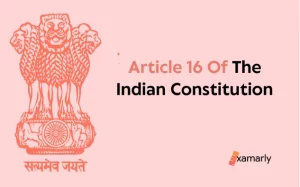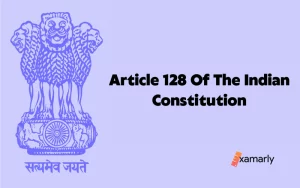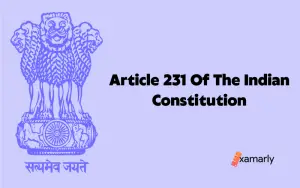An Outline
Article 343 of the Indian Constitution falls under Part XVII of the Constitution and deals with the official language of the Union. It states that the official language of the Union shall be Hindi in Devanagari script and English shall continue to be used for all official purposes of the Union.
This article has been a source of controversy and debate in the country, with some arguing that the promotion of Hindi as the official language is unfair to speakers of other languages.
In this blog post, we will explore the history and significance of Article 343, as well as the arguments for and against the promotion of Hindi as the official language of India.
Background Of Article 343 Of The Indian Constitution
Do you know how the Draft Article was amended into the clauses present today? Were there any conflicts around it? Here is a short background story for your knowledge.
In 1949, Article 301(A) of the Draft Constitution (Munshi Ayyangar Proposal) stated:
1) The official language of the Union shall be Hindi in Devanagari script.
The form of numerals to be used for the official purposes of the Union shall be the international form of Indian numerals.
(2) Notwithstanding anything in clause (1), for a period of fifteen years from the commencement of this Constitution, the English language shall continue to be used for all the official purposes of the Union for which it was being used immediately before such commencement:
Provided that the President may, during the said period, by order authorise the use of the Hindi language in addition to the English language and of the Devanagari form of numerals in addition to the international form of Indian numerals for any of the official purposes of the Union.
(3) Notwithstanding anything in this article, Parliament may by law provide for the use, after the said period of fifteen years, of —
(a) the English language, or
(b) the Devanagari form of numerals,
for such purposes as may be specified in the law
- The question of a national language for India was debated and caused conflict in the Constituent Assembly
- Draft Article 301 A was introduced to the Draft Constitution of India 1948 on September 12, 1949, and declared Hindi in the Devanagari script as the official language of the Union and the use of the international form of Indian numerals for official purposes
- Some members opposed Hindi as the official language and emphasized that no language could be imposed on India just by including it in the Constitution
- Some members persisted in trying to remove Hindi and proposed using Hindustani instead
- The adoption of Hindi as the official language in the Draft Article was a major concession to members who supported Hindi, but they were still dissatisfied with the provision and criticized it, strategized outside the Assembly, and proposed amendments
- These amendments included using the Devanagari system of numerals and speeding up the replacement of English with Hindi
- After negotiations, one amendment was adopted which allowed Parliament to also legislate on Nagari numerals, effectively empowering them to use Devanagari numerals before the 15-year period.
The Draft Article (known as Article 343 of the Indian Constitution today) was adopted by the Assembly with the amendment on 14 September 1949.
Article 343 Of The Indian Constitution – Official language of the Union
Let’s understand Article 343 of the Indian Constitution better by breaking down its clauses.
Clause 1 – As it is & Explained
(1) The official language of the Union shall be Hindi in Devanagari script.
The form of numerals to be used for the official purposes of the Union shall be the international form of Indian numerals.
The first clause of Article 343 of the Indian Constitution states that Hindi, written in the Devanagari script, shall be the official language of the Union. This means that Hindi shall be used for all official communication, documentation, and proceedings of the central government of India.
In addition to specifying the official language, Article 343 of the Indian Constitution also states that the form of numerals to be used for official purposes shall be the international form of Indian numerals.
Clause 2 – As it is & Explained
(2) Notwithstanding anything in clause (1), for a period of fifteen years from the commencement of this Constitution, the English language shall continue to be used for all the official purposes of the Union for which it was being used immediately before such commencement: Provided that the President may, during the said period, by order authorise the use of the Hindi language in addition to the English language and of the Devanagari form of numerals in addition to the international form of Indian numerals for any of the official purposes of the Union.
This clause of Article 343 of the Indian Constitution establishes that, for a period of fifteen years following the commencement of the Constitution of India, the English language will continue to be used for all official purposes of the Union.
However, the clause also includes a provision stating that the President of the Union has the authority to issue an order allowing the use of the Hindi language and the Devanagari form of numerals in addition to English and the international form of Indian numerals, respectively, for any official purposes of the Union.
This provision allows for the possibility of using multiple languages for official purposes during the fifteen-year period.
Clause 3 – As it is & Explained
(3) Notwithstanding anything in this article, Parliament may by law provide for the use, after the said period of fifteen years, of—
(a) the English language, or
(b) the Devanagari form of numerals, for such purposes as may be specified in the law.
This clause states that, despite the provisions in clause 2 of Article 343 of the Indian Constitution, Parliament has the authority to pass a law allowing for the use of either the English language or the Devanagari form of numerals for specific purposes after the fifteen-year period mentioned in clause 2 has expired.
This means that, even after the fifteen-year period has ended, Parliament has the power to decide whether or not to continue using English or the Devanagari form of numerals for certain purposes and to specify which purposes these are.
You might also like to read – Article 120 Of The Indian Constitution
Conclusion
Here is a summary of the main points that can be concluded from Article 343 of the Indian Constitution:
- The English language is to be used for all official purposes of the Union for a period of fifteen years following the commencement of the Constitution.
- The President has the authority to issue an order allowing the use of the Hindi language and the Devanagari form of numerals in addition to English and the international form of Indian numerals, respectively, for any official purposes of the Union during this period.
- After the fifteen-year period has ended, Parliament has the power to pass a law allowing for the use of either the English language or the Devanagari form of numerals for specific purposes.
FAQs Related To Article 343 Of The Indian Constitution
Which part of the Indian Constitution does Article 343 belong to?
Article 343 of the Indian Constitution belongs to Part XVII which is called Official Language.
Which schedule of the Indian Constitution talks about Official Languages?
The Eighth Schedule of the Indian Constitution mentions the Official Languages of India.
What is Devanagari Script?
The Devanagari script is a writing system used for many languages spoken in India, including Hindi, Marathi, and Sanskrit. It is an abugida script, which means that each consonant has an inherent vowel sound, and additional vowel sounds are represented by modifying the consonant symbols.
What is the international form of Indian numerals?
The international form of Indian numerals, also known as the Hindu-Arabic numerals, is the same system of numerals used in the Western world, with digits 0 through 9. This system is widely used and understood globally, making it an appropriate choice for official purposes.
Is Hindi the National language of India?
No, Hindi is recognized as the official language of the Union by the Constitution of India, not the National language.


